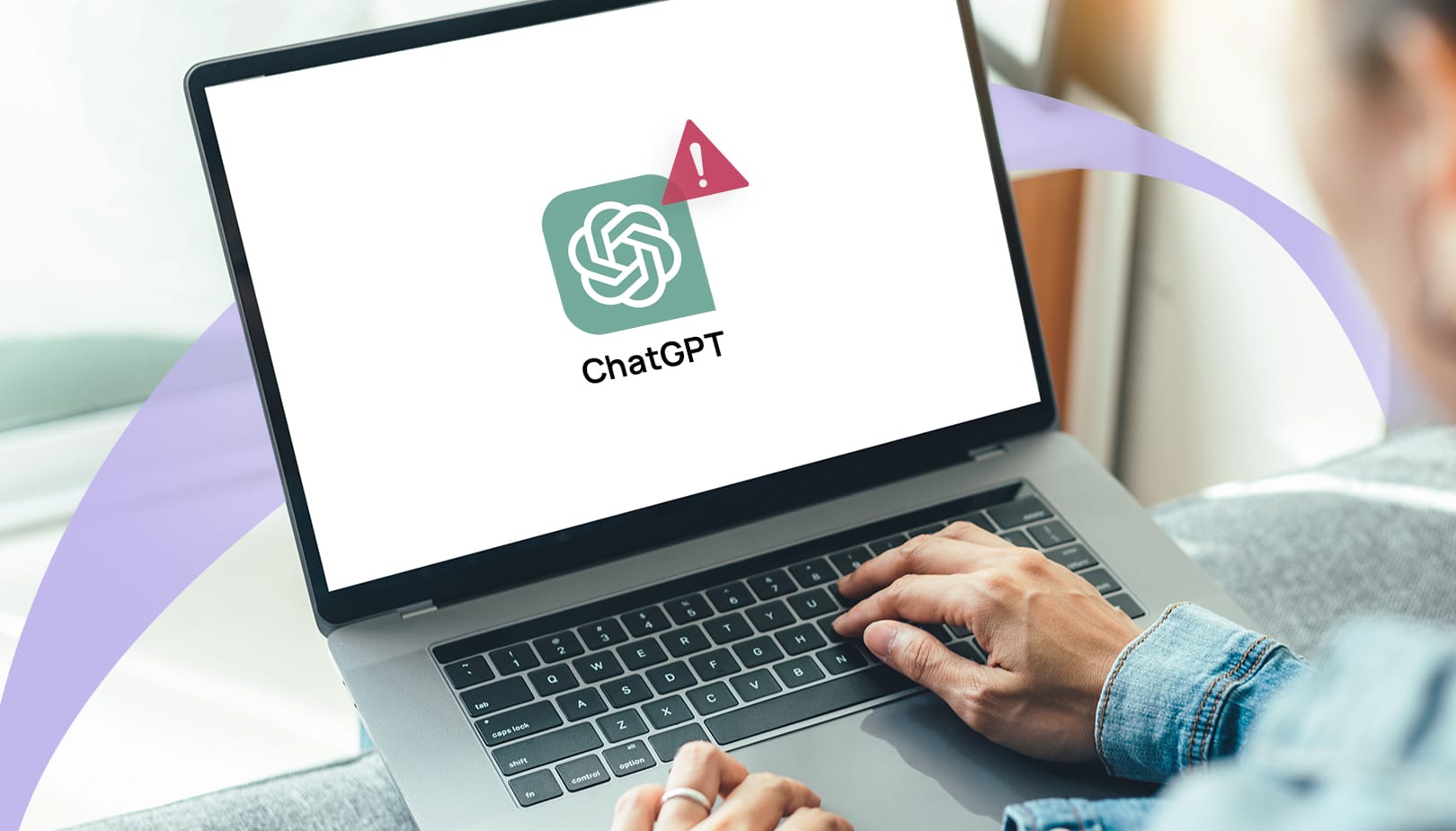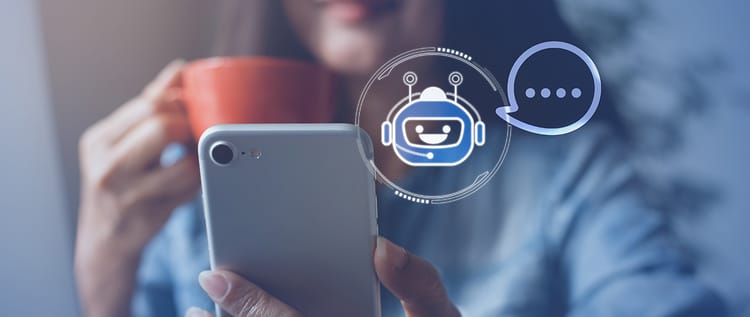Managing the Risks of ChatGPT and other Chatbots- Tips to Stay Safe

Artificial intelligence (AI) is a game-changer that enhances productivity in various applications, including business and research. In recent months, ChatGPT has become the 'face of AI technology,' with potential applications across industries. However, with this promise come certain risks that can limit users' understanding of the world. Before diving into the world of AI, it's best to evaluate the privacy and security risks involved.
Artificial intelligence, or AI, is changing the world, and with the launch of ChatGPT, the technology becomes much closer to the general public. OpenAI developed a language model called ChatGPT that can carry a dialogue, answer follow-up questions, challenge incorrect premises, admit mistakes, and reject inappropriate requests.
Although ChatGPT's main function is to copy and adopt human conversations, it's considered a versatile technology. According to its makers, ChatGPT can also write and debug computer programs, draft essays and answer questions, compose music, generate business ideas, provide strategic analysis, and write songs, lyrics, and stories.
The list of ChatGPT's use cases grows as new improvements and upgrades are made to the tool. ChatGPT was credited with popularizing AI technology last year, making it more familiar and available to the general public. In January 2023, ChatGPT became the fastest-growing consumer software application, with over 100 million users, boosting the company's market cap to $80 billion.
In addition, ChatGPT's release in the market opened the floodgates for other chatbots and related software, including xAI's Grok. While ChatGPT and other popular chatbots have obvious benefits, many observers and experts have raised concerns about its risk and potential to enable plagiarism and promote misinformation. Some even say that using AI can narrow our ability to understand our world better.
Is ChatGPT safe?
OpenAI believes that artificial intelligence can benefit humanity, and it does its share in responsibly developing ChatGPT. While there are plenty of privacy and security concerns about AI's chatbot, OpenAI has built a few guardrails to make it safer.
- Annual security audit: The chatbot undergoes regular security audits by independent security experts to identify potential vulnerabilities.
- Strict access controls. Only authorized individuals can access the chatbot's code base.
- Data encryption. Data is encrypted in each session. So, when you start a session with ChatGPT, your inputs are scrambled into a specific type of code that is unscrambled only after they reach their intended recipient. In short, data exchange only happens between you and the AI.
- Bug Bounty Program. In August 2023, OpenAI announced the launch of the Bug Bounty Program, which aims to reward those who contribute to keeping the ChaGPT's technology safe and secure. This program is open to all individuals who can report bugs, vulnerabilities, or security flaws. OpenAI has partnered with Bugcrowd to manage the reward process and streamline everyone's experience.
What are the common risks associated with ChatGPT?

A key concern for many is ChatGPT's potential for misuse. Here are some of the potential security risks that everyone should know:
Spam and phishing
Phishing is a serious online problem, which can lead to data theft and other scams. In the past, many find it easy to spot phishing scams since these contain obvious spelling mistakes and their use of awkward phrasing and poor grammar. However, with ChatGPT, scammers can instantly compose fluent messages and conversations in English and other languages. With the help of ChatGPT, these individuals can now improve their phishing messages, making them more convincing.
Data leaks
ChatGPT is still trying to fine-tune its data security. In March 2023, OpenAI reported an issue, and the chatbot was down for several hours. During the tool's downtime, some users saw the conversation history of other uses. There were reports, too, that the payment-related information of some of its subscribers had been leaked.
On March 24, 2023, OpenAI published a blog describing and explaining the outage. The company took action, but that doesn't mean the problem will not happen again. Cybersecurity breaches and accidental leaks can happen, and developers must work hard to prevent them.
Tool for spreading misinformation and fake news
Many people are now seriously concerned about misinformation and fake news, and some worry that ChatGPT may contribute to this growing problem. We should remember that ChatGPT's responses are based on data and information it was trained on, and most of these are sourced online. The chatbot then generates a sequence of words that continues the answers or conversations. Since misinformation and fake news exist online, there's also the probability that the ChatGPT may also provide wrong information.
Information gathering and identity theft
Bad actors may also use ChatGPT to gather information for questionable purposes. ChatGPT has been trained on large volumes of data and has access to sensitive information that can be harmful when used by the wrong individuals. For example, users may research a popular bank's security and IT systems. Taking all information in the public domain, ChatGT may list all the security and IT systems in place. Or, a malicious actor may use ChatGPT to research a specific person and use the information for fraudulent activities.
Potential for bias
Even if ChatGPT can access correct information, there's also the potential for bias. The chatbot may reflect the biases of its training data, which can lead to unfair or discriminatory responses. OpenAI has responded to these concerns by preventing its chatbot from answering politically charged questions.
5 tips on how to stay safe when using ChatGPT or other chatbots
However, as with any new technology, proceeding cautiously and staying informed about potential security and privacy risks is important. Here, we'll cover some basic tips and steps to stay safe when using ChatGPT or other chatbots.
- Don't share sensitive information. Never disclose your personal or other confidential information when using ChatGPT. Remember the ChatGPT outage where portions of conversations and payment details were accidentally leaked?
- Review OpenAI's privacy policy. If you're new to ChatGPT, we recommend reading the company's privacy policy to understand how data is handled and what control you have over your information.
- Use an anonymous account. If you will use ChatGPT, ensure you use an anonymous account for privacy and security. However, chatbots may require you to share your phone number when signing up for an account.
- If you're going for a paid account, use a strong password. Like email accounts, your ChatGPT account requires unique and strong passwords. You'll need to change them regularly to ensure their safety.
- Stay ahead and educated. It is important to become a responsible user of ChatGPT and other AI tools and chatbots. Follow the latest trends and developments in AI, their security and privacy risks, and related scams. Remember, AI and ChatGPT are just tools to simplify our tasks and enhance our quality of life.




